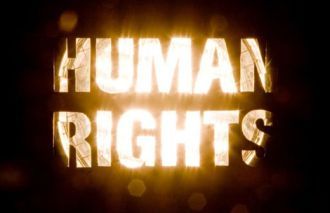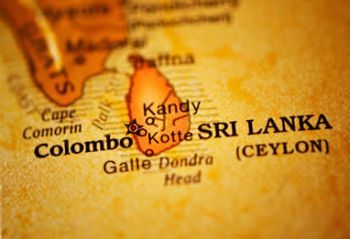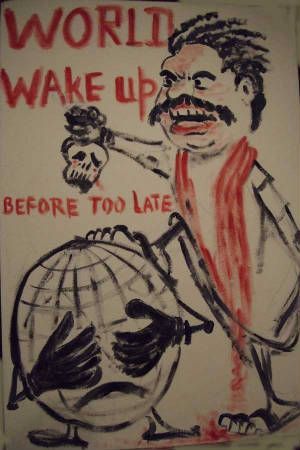
Publisher:
Bonnie King
CONTACT:
Newsroom@Salem-news.com
Advertising:
Adsales@Salem-news.com

~Truth~
~Justice~
~Peace~
TJP
Nov-30-2013 14:56

 TweetFollow @OregonNews
TweetFollow @OregonNews
No Escaping An Investigation
Parasaran Rangarajan for Salem-News.comIt is important to remember LTTE combatants who surrendered and therefore were prisoners of war, were murdered. They are protected by international humanitarian law - killing these prisoners of war was a war crime.
 truthinweakness.blogspot.com |
(LONDON) - An article titled The Illegality of U.N. Secretary General Ban Ki Moon’s approach to Sri Lanka written by Mr. Dharshan Weerasekera, former member of the Sri Lankan Ministry of Defence and current attorney has brought up every nearly argument from a legal standpoint to defend Sri Lanka from a war crimes investigation. The article can be found at: http://d3e11nsse60sj1.

The main focus of the article is to question if U.N. Security-General (UNSG) reports can be indirectly submitted to the U.N. organs and the answer is yes, the U.N. Human Rights Council (UNHRC) and U.N. Security Council (UNSC) both take into account reports submitted by expert panels established by the UNSG as that is the point of these reports. We see this holds true throughout the history of international human rights and criminal law cases at the U.N., most recently the UNSG submitted it’s report on Iran to the UNHRC in 2011. The author also argues that usage of Article 99 of the UN Charter by the U.N. Secretary General (UNSG) is illegal and questions the legal establishment of the Report of the Secretary-General’s Panel of Experts on Accountability in Sri Lanka (March 31st, 2011) as that is a key document providing evidence of war crimes; crimes against humanity and genocide. It is also important to point out that it is not only the UN making claims of violations of human rights including shelling of “No Fire Zones” but the U.S. Department of State in their reports of 2009 and 2012 as well so there are multiple sources of independent claims of human rights violations.
First, regarding the validity of the U.N. report, we can refer to when the UNSG and government of Sri Lanka issued a joint statement in 2009. The author is of the view that the joint statement attached in Annex 1 (Paragraph 7) of the U.N. report is not valid to be actionable since there is no mention of admitting to any crimes or joint accountability by the government of Sri Lanka. However it clearly states under that Annex 1 (Paragraph 7) that:
“The Secretary General underlined the importance of an accountability process for addressing violations of international humanitarian law and international human rights law. The Government will take measures to address those grievances.”

That is the end of the matter from a legal standpoint regarding the validity of establishing the U.N. Expert Panel since both sides have agreed and consented that there was the need to address “those grievances”, implying that the government of Sri Lanka recognized the “violations of international humanitarian law and international human rights law” in the sentence before that without expressly admitting to them. This is indeed a joint statement for joint accountability and this is valid under customary law. Furthermore, there was a verbal agreement between President Rajapaksa and the UNSG to address these challenges in Annex 1 (Paragraph 1) of the report. Therefore, the panel was commissioned to investigate these allegations which the government of Sri Lanka agreed to, negating any question of the validity of the establishment of the panel by the UNSG.
Sri Lanka is a party to many international human rights legislation and customary law also applies so the panel was tasked with examining “the modalities, applicable international standards and comparative experience with regard to accountability processes,” taking into account the nature and scope of any alleged violations of international humanitarian and human rights law. It was in this report where credible evidence of crimes against humanity and genocide were found which establishes the prima facie case for various war crimes including genocide following definitions related to “extermination” in the International Criminal Court (ICC) Statute mentioned in my previous article; http://salem-news.com/

Next, the article states that the International Committee of the Red Cross (ICRC) left voluntarily in May 2009 but we see from an official statement on the ICRC website; http://www.icrc.org/eng/
He brings up the point there is a “numbers game” being played by the U.N. The report does admit that it is difficult to verify the exact number of causalities. The report in the executive summary states that the government of Sri Lanka maintains there were “zero causalities” but is now is conducting a census themselves, which started earlier this week, to come up with a figure to shield the perpetrators. The U.N. has secured confidential testimony from various sources and also used common sense to come up with these figures. One of the various methods of estimations used is based on counting those who emerged from the “No Fire Zone”; around 290,000 and deducting that figure from the original amount which were stuck in the “No Fire Zone”, around 330,000 which leaves us at around minimum of 40,000 casualties. The ICC has conducted proprio motu investigations in the case of Kenya which was around 1000 casualties so there is definitely the sufficient gravity of the crime as required by ICC Statute as there are far more deaths in the case of Sri Lanka.
It is important to remember LTTE combatants who surrendered and therefore are prisoners of war and were murdered also are protected by international humanitarian law where killing these prisoners of war is a war crime. Also, the District Disaster Management Unit noted over 40,000 surgical procedures and over 5000 amputations conducted during this final stage of the war and the estimated injury to death ratio using medical statistics is 1:2, 1:3, or even higher as stated. You may refer to Section 133 on page 40 of the report for verification of the mentioned figures. His article does not mention this at all. Furthermore, the U.N. received over 4000 submissions on over 2300 cases which are confidential.
You may also refer to U.N. Satellite Imagery showing the bombings of these “No Fire Zones” adding evidence to these numbers by looking at the damage caused by the Sri Lankan Air Force (Source: TGTE Book: “We Accuse: War Crimes and Genocide”)
In regards to the UNSG acting on report by directly referring to the UNSC for action, he argues that Article 98 must be used first before Article 99 as there must be consent from U.N. organs. However, this is not true as in my prior article you can see the three famous cases; Congo in 1960, Iran Hostage Crisis in 1979, and 1989 in Lebanon and also the three more recent ones where the UNSG has bypassed Article 98 to go directly to Article 99 acting on his own cognizance as there were legitimate threats to “international peace and security” and an area where up to 330,000 civilians were stuck in a “No Fire Zone” and 75,000 do not come out alive certainly fits that criteria of invoking Article 99. Furthermore, a fact finding mission can be established without the consent of the state concerned as shown in the conflict between Djibouti and Eritrea therefore negating any discussion of using the "joint statement" as a basis to set up a panel of experts. In addition, the UNSC can refer a case to the ICC invoking Article 13 (b) of the Rome Statute using only the UNSG's international inquiry as was done in the case of Darfur.
It does not impeach on Article 98 because the UNSG will eventually present his fact finding mission to the UNSC for an official tribunal to be set up or resolution to be passed for further inquiry. Nor does it impeach on Article 2 (7) as he the UNSG is not intending to “open old wounds”, impeach on sovereignty, or exploit “accountability” but to investigate the violations or grievances of international humanitarian law which the government of Sri Lanka accepted to address in the joint statement. There is no violation of Article 100 as all of this was conducted under the auspicious of the U.N., with consent of the government of Sri Lanka, and without “external interference”. Furthermore, Article 99 must be interpreted to allow the UNSG to give direct jurisdiction to the ICC. This is not in conflict with Article 98 requiring consent of other U.N. organs as each legal instrument is invoked on a case-by-case basis in which Article 99 can be used in situations of extreme cases such as genocide. The U.N. has agreed to moving towards an “Article 99 attitude” in addressing it’s failures in regards to the “Responsibility to Protect” doctrine citing failures to act in Sri Lanka and Rwanda as stated in the UN Follow-up Report to the Secretary-General’s Internal Panel of UN Action on Sri Lanka issued July 9th, 2013.
Last but not least, he suggests the idea of approaching the International Court of Justice (ICJ) to seek opinion on the legal validity of the UNSG’s establishment of the report which the government of Sri Lanka has the rights to do which is correct. However, when the government of Sri Lanka with the approval of President Rajapaksa agreed to address these “grievances” when the UNSG stated that there were violations of international law, can we not imply that the government of Sri Lanka understood the UNSG report would look into these violations and grievances? In addition, he would like to unseal the confidential witness statements to have the UNSG prove in front of the ICJ how he came up with the number of causalities which is a blatant violation of witness and victim rights. He states that if there is evidence that Sri Lankan officials have participated in these violations, they are perfectly free to go to the U.N. and present this which is what has occurred but contradicts this when questioning the submissions to the panel. However, if we examine the history of the U.N., we find that there has not been a single case where U.N. Panel of Expert reports, established in nearly all genocide cases, has been rejected by the ICJ as these are independent and credible reports by the international community who have no bias in this matter. However, it is the right of the government of Sri Lanka to do so and they may very well do so to seek a “last hope” of throwing out key evidence which any independent judge will reject as the ICJ is the principal organ of the U.N. with the UNSG as its chief administrative officer under Article 97.
A follow-up article published on this criticizes the government of Sri Lanka itself for issuing that joint statement which allowed for the UNSG to establish the following reports. This article can be found at http://www.onlanka.com/news/
Parasaran Rangarajan is Editor-In-Chief For International Law Journal of London and Goodwill Ambassador of Globcal International
 |
 |
 |
Articles for November 29, 2013 | Articles for November 30, 2013 | Articles for December 1, 2013

googlec507860f6901db00.html

Quick Links
DINING
Willamette UniversityGoudy Commons Cafe
Dine on the Queen
Willamette Queen Sternwheeler
MUST SEE SALEM
Oregon Capitol ToursCapitol History Gateway
Willamette River Ride
Willamette Queen Sternwheeler
Historic Home Tours:
Deepwood Museum
The Bush House
Gaiety Hollow Garden
AUCTIONS - APPRAISALS
Auction Masters & AppraisalsCONSTRUCTION SERVICES
Roofing and ContractingSheridan, Ore.
ONLINE SHOPPING
Special Occasion DressesAdvertise with Salem-News
Contact:AdSales@Salem-News.com

Salem-News.com:
Terms of Service | Privacy Policy
All comments and messages are approved by people and self promotional links or unacceptable comments are denied.
[Return to Top]
©2026 Salem-News.com. All opinions expressed in this article are those of the author and do not necessarily reflect those of Salem-News.com.